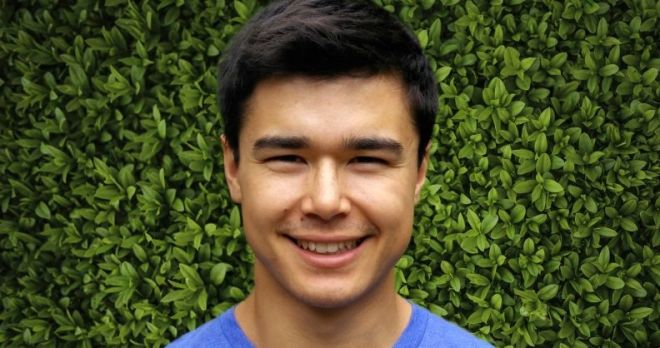Academic Clinical Fellow Job in Anaesthesia – Is it for you?

There are many reasons why applying for an academic clinical fellow (ACF) job is a good career move – an ACF offers an opportunity to have a more in-depth look at clinical practice through the lens of academia – asking and trying to answer the important questions that can ultimately improve healthcare.
These jobs provide protected time (25%) to focus on research, allowing individuals to participate in postgraduate modules in clinical research, take part in clinical trials, or build their research portfolio in the direction of ongoing research funding – representing essential experience and skill-development needed for a career in research.
But what about an ACF in anaesthesia?
If you accept that academia could be ‘the pursuit of increasing knowledge to improve practice in healthcare/medicine/anaesthesia’, I think that academia and anaesthesia are inseparable.
For example, we’ve come a long way since using ether and chloroform – Sevoflurane was only invented in the 70s! Likewise, other principal elements of anaesthesia are only recent inventions; the LMA was invented in 1982, the I-Gel was introduced in 2007, and modern day anaesthetic machines are a far cry from Morton’s 1846 ‘ether inhaler’ which looks like something out of an opium den.
Anaesthesia has come a long way, but has a long way further to go yet. Not only is anaesthetic knowledge progressing to envelop further bounds, but it also looks inwards; audit and QIP are some examples, but the recent questioning of our use of oxygen in anaesthesia and critical care (The UK-ROX Study) demonstrates an important example of introspective improvement within the specialty.
Anaesthesia has more research opportunities than a CO2 scrub canister has soda lime pellets. If you’re thinking about applying for anaesthesia, the chances are that you are an individual who likes to know how things work – flip this to asking ‘why things [don’t] work’, and you’ll easily reach the next question of ‘how to make things better?’
An academic is born!
Why do we give so much oxygen? Why does my I-gel thermoplastic take so long to fix the leak? Why do we use so much plastic? How can we make this checklist even longer? Why do bougies only come in blue?
Benefits of an Academic Clinical Fellow Job in Anaesthesia
- 25% protected research time, 75% clinical time *pandemics permitting.
- Access to learning and development opportunities beyond befriending your librarian:
- These options are offered by the partnership between the hospital, medical school and/or university, and can included:
- High quality research methods training.
- Often, these jobs are advertised with access to dedicated research facilities – opening up the potential projects you could do.
- ‘Researcher Development Programmes’ or suchlike are offered to improve research skills or to provide methodological and practical support.
- Access to academic meetings (with lunch!) and opportunities to build mentoring relationships with people you like who are good at what they do.
- Exposure to clinical trials and research teams.
These opportunities are hard to come by if working a 100% clinical job – putting doctors who are in ACF jobs in stronger positions to continue a research career in the future. Some may also feel that splitting a job into 75% and 25% provides a nice ‘break’ from clinical work while providing an opportunity to think or ask questions – a combination that might stave off career burnout.
ACF jobs, when affiliated with a specialty, are also ‘run through’. This means it is possible to benchmark once at CT1 and not have to worry about selection pressures during registrar applications later down the line.. until CCTs and consultant jobs, of course.
So, we’ve discussed some reasons you might want to to consider academia alongside your career in anaesthesia. Why might an ACF in anaesthetics be less appealing?
- It’s hard work. You’ll be expected to achieve the same clinical competencies as your 100% time peers in 75% of the time. It’s possible, judging from the trainees who move through the ranks at the same pace, but completing your learning objectives and meeting the requirements for ARCP will likely take resolve and focus.
- It’s competitive. Jobs are few and far between – with ~250 academic jobs being released each year by the National Institute of Health Research, but with fewer of them being associated with anaesthesia or related subjects. The jobs will also be deanery specific, so it’s worth checking on the websites of different deaneries, or enquiring with their ACF programme organisers, to learn about prospective jobs.
- It’s complicated. Navigating the Oriel website can be tricky at the best of times, but applying for academic jobs adds another layer of complexity.
- Firstly, academic jobs are advertised at different times to the usual core-training or registrar jobs – an early filtering out those who are unprepared and therefore who do not need to apply.
- Secondly, there are often multiple jobs associated with anaesthesia. In my deanery this year there were three jobs available; one ACF specifically for anaesthetics, one specifically for ICU, and another termed “ACF in ‘Acute Care'”. This final job related to the NIHR research interest in ‘Acute Care’, was not run-through, and also drew applications from general surgery and emergency medicine.
- Furthermore, the ‘ACF in anaesthesia’ may actually represent only a single ACF that is offered to other competing specialties too. The ACFs in anaesthesia and ICU mentioned above were also listed as ‘ACF in Psychiatry/General Practice’, indicating that if applying for the anaesthesia sub-section, you’ll be competing against other want-to-be-anaesthetists as well as GP and psychiatry trainees.
- What are you getting yourself into? An ACF is a great opportunity to get involved in research, but the vested interest held by the NIHR as part of the ‘modernising medical careers’ is to increase the number of clinical academics. The emphasis is on attracting candidates with ‘outstanding’ potential to be clinical academics and leaders within their fields, with the optimal outcome of this ACF programme being the successful securing of funding for a PhD. Judging from this paper, it seems that the majority of ACFs do go onto secure some form of research job; highlighting the success of the programme, but also suggesting that if your heart isn’t in it then you may have some difficult decisions to make or conversations to have in the future.
So, there we are. Should you approach your anaesthesia practice with a mindset of questions and improvement-hunting? Yes. Should you apply for the ACF programme? Maybe, if it will work for you. Do you need to do the ACF to be involved in research? No – many key figures in the field (Prof. Archie Brain for example), did not do the ‘ACF’ programme – but hunting down the opportunies and resources may take more work.
In the meantime, check out our tutorials on our website and keep up to date with our YouTube Channel. Otherwise, you can read more about the history of anaesthesia from the RCOA here.
Dr Rory Heath
Anaesthetics Core Trainee
